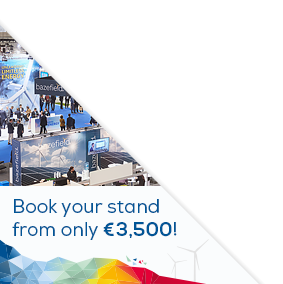Posters
Siblings:
ProceedingsProgrammeProceedingsSpeakersPostersContent PartnersElectrification StageMarkets TheatreR&I ActivitiesStudent DayProgramme Committee & abstracts reviewersPresenters dashboardCome meet the poster presenters to ask them questions and discuss their work
We would like to invite you to come and see the posters at our upcoming conference. The posters will showcase a diverse range of research topics and provide an opportunity for delegates to engage with the authors and learn more about their work. Whether you are a seasoned researcher or simply curious about the latest developments in your field, we believe that the posters will offer something of interest to everyone. So please, join us at the conference and take advantage of this opportunity to learn and engage with your peers in the academic community. We look forward to seeing you there!

PO009: Machine Learning Approach to Quantify Performance Impact of Turbine Aerodynamic Upgrades
Lewis Harvey, Data Scientist, RES
Abstract
Assessing the energy yield impact of turbine performance upgrades is challenging due to the uncertainties inherent in the data analysis. Hardware upgrades such as blade aerodynamic enhancements require the comparison of pre- and post-upgrade performance and are subject to uncertainty related to differences in atmospheric conditions. A machine learning approach was verified and applied to infer the yield impact of aerodynamic upgrades on a turbine at a RES (Renewable Energy Systems Ltd) operated Scottish wind farm. The test turbine was fitted with vortex generators, winglets and gurney flaps. Operational data from the wind farm SCADA (supervisory control and data acquisition) system was used to predict the impact of the upgrades on energy yield. A model of the test turbine's power output based on measurements at neighbouring turbines was trained using data from the pre-upgrade period. Performance impact was subsequently determined by comparing test turbine power output to model predictions for the post-upgrade period. To measure a performance impact, the uncertainty of this model must be lower than the expected uplift. This uncertainty represents the limit in resolution of a measurable gain. To minimise uncertainty, the assessment methodology accounts for the different atmospheric conditions experienced during pre- and post-upgrade dataset; especially pertinent when analysing sub-year post-upgrade periods. Furthermore, due to the proximity of the vortex generators to the root of the blades, the nacelle anemometry of the test turbine was affected and could not be used in this analysis. The adopted machine learning approach was benchmarked against traditional modelling techniques and shown to be effective in reducing uncertainty. The methodology was verified using multiple control experiments, including validation against a LiDAR (Light Detection and Ranging) study which measured an uplift on another turbine in the RES managed portfolio. The approach facilitated identification of a measurable performance uplift in this case.







